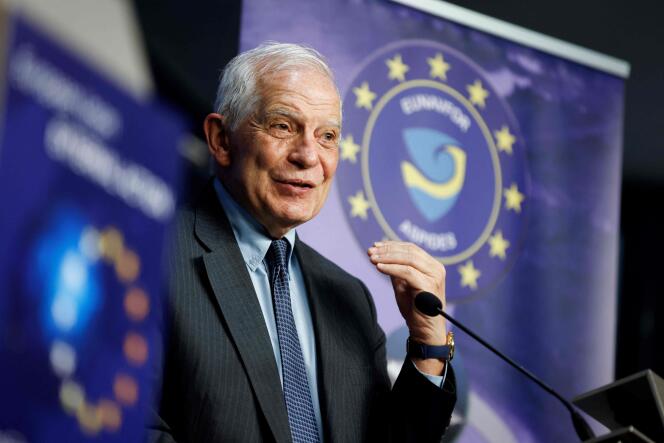


A former head of Spanish diplomacy, Josep Borrell has been the European Union's (EU) high representative for foreign affairs since 2019. After Iran's attack on Israel, which he condemned "in the strongest terms," he urged Tehran not to engage in a "new escalation" and convened an emergency videoconference of the 27 member states' heads of diplomacy on Tuesday, April 16. Since the start of the conflict between Israel and Hamas, the European leader has repeatedly called for a ceasefire in the Gaza Strip, deeming the enclave to have become an "open-air cemetery."
The EU's only strength is its diplomatic power of conviction. It's obvious that some member countries have more influence over Israel than others, notably Germany, which has excellent relations with the Israelis. The Americans could, if they wished, use other resources, notably through their arms deliveries to Israel. In the past, they have already taken binding decisions. But today, I don't think they want to use the levers at their disposal.
The EU's political aim is to avoid escalation. It's like a game of chess, with each side advancing its pawns. Israel attacked an Iranian diplomatic representation in Syria, Iran retaliated. Now it's Israel's turn to react. We must bear in mind the shock that the Hamas attacks of October 7 and the security failures have caused to Israeli public opinion. But we are warning Israel that it is in everyone's interest that there should be no regional confrontation. This is also what we said to the Iranians the day after the attack on the Damascus consulate: it's in nobody's interest, and especially not in the interest of the Gazans, that there should be a regional conflict because that would mean that the war would not end.
The Hamas attack was unprecedented, and so was the Israeli response. The seeds of hatred are being sown for three generations. More than ever, the only possible solution is separation [between the two peoples].
We were warned several days in advance. After the attack, the Iranian Foreign Minister pointed out to me that they had only targeted military installations, making it clear that this was a controlled response. When you want to do damage, you don't send drones that take six hours to arrive [at their target]. This in no way exonerates or tones down this attack, which is a first on Israeli territory. But the very fact that the missiles and drones were shot down was part of the strategy.
You have 61.03% of this article left to read. The rest is for subscribers only.
